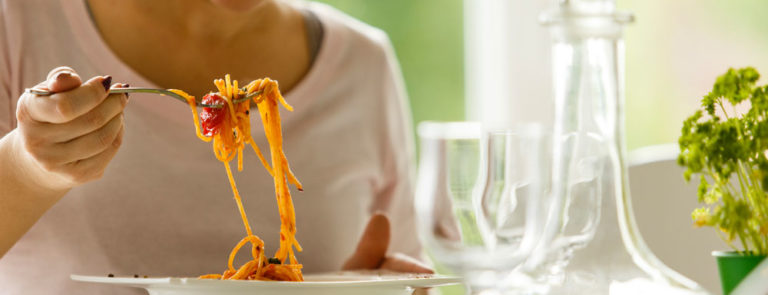20% off €35
Code:EXTRA20
Health benefits of aubergines

Also known as eggplants, find out more about aubergines here. From it's nutritional profile to the various health benefits and how to choose them
Summary
1Aubergine nutritional profile
Looking for the numbers? A 100g serving of aubergine provides: 15kcal, 9g protein, 4g fat, 2g carbohydrate, 7g fibre...
2What is an aubergine?
This remarkable fruit belongs to the nightshade family, which includes other tasty plants like tomatoes, potatoes, and peppers. These are all the...
3Why are aubergines good for you?
As well as their fundamental nutritional values, aubergines are a great source of some vitamins and minerals which you need in your diet...
Aubergine, known to our American friends as eggplant, is an undoubtedly delicious and versatile fruit. With a beautiful deep purple colouring and the ability to soak up flavours like a sponge, there are lots of tasty ways you might like to cook with aubergine. But what’s the nutritional benefit?
What is an aubergine?
This remarkable fruit belongs to the nightshade family, which includes other tasty plants like tomatoes, potatoes, and peppers. These are all the edible parts of flowering plants from the Solanaceae family.1
Although these are botanically fruits, most people know them as vegetables, and use them in savoury and vegetarian dishes as a great source of nutrients.
Aubergine nutritional profile
Looking for the numbers? A 100g serving of aubergine provides:
- 15kcal
- 9g protein
- 4g fat
- 2g carbohydrate
- 7g fibre2
This means they’re an excellent source of fibre while being low in calories, making them a fantastic choice if you’re trying to lose weight healthily.
Why are aubergines good for you?
As well as their fundamental nutritional values, aubergines are a great source of some vitamins and minerals which you need in your diet. Let’s take a look at some of these, so you can cook and enjoy with confidence.
Aubergines are high in nutritional fibre, which is an essential part of a healthy diet because it helps keep your digestion running smoothly.3
A right amount of fibre in your diet can also help control blood sugar, preventing spikes and crashes.4 Fibre-rich foods can also help you feel satisfied after a meal, which means you’re less likely to snack throughout the day.
Like we’ve already mentioned, aubergines are high in fibre and have lots of nutritional value, but they’re also relatively low in calories. This means they’re a great way to improve a balanced diet and feel fuller for longer without adding lots of calories that could lead to weight gain.5
Aubergines are a good source of vitamins B1 and B6. Vitamin B1, also called thiamine, helps your body turn food into energy and can also help keep your nervous system healthy.6
Our bodies can’t make vitamin B1 themselves, which means we rely on our diet to get all we need. Enter, aubergines! Vitamin B6, which is also known as pyridoxine, helps the body use and store energy from carbohydrates, and helps keep our red blood cells healthy.7
How to choose an aubergine
Because of their naturally resilient and smooth skin, aubergines often come without packaging. That’s a bonus if you’re trying to cut back on plastic, and also means you can choose the best quality fruit in the shop.
When you’re choosing an aubergine, look out for a fruit with a deep purple, smooth, and shiny surface. Give it a gentle squeeze to make sure it’s not gone soft. If an aubergine is ripe, you should be able to press it gently and see the skin spring back into shape. If a dent remains, you might like to choose a different one. Finally, examine it for any bruises or scratches on the surface. These can mean the flesh underneath is damaged too.
Now take your aubergine home and prepare it with confidence. There are lots of ways to cook this unique fruit, from roasting and frying to stewing and even BBQing. It’s up to you to figure out your favourite.
- https://www.healthline.com/nutrition/eggplant-benefits
- https://www.bbcgoodfood.com/howto/guide/ingredient-focus-aubergines
- https://pubmed.ncbi.nlm.nih.gov/7360261/
- https://www.healthline.com/nutrition/eggplant-benefits
- https://www.healthline.com/nutrition/eggplant-benefits
- https://www.nhs.uk/medicines/thiamine-vitamin-b1/
- https://www.nhs.uk/conditions/vitamins-and-minerals/vitamin-b/



